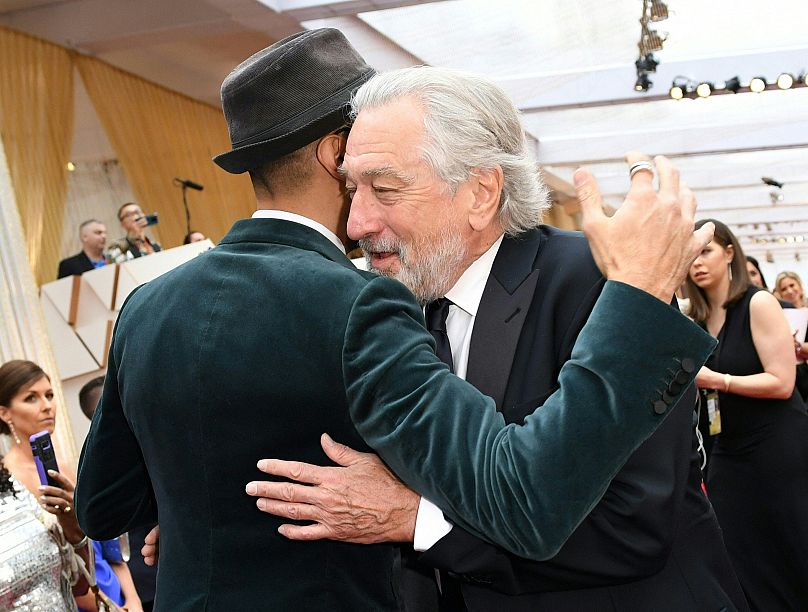‘The Past Goes Fast’ examines the life of Robert De Niro’s father, a talented but unknown artist who struggled with his identity and loneliness.
Robert De Niro’s upcoming documentary The Past Goes Fast takes an intimate look at his father’s life through his art, journals and photographs, a deeply introspective project that’s unlike anything the award-winning actor has done before.
De Niro is working on the film with French artist JR, a longtime friend who the actor has collaborated with in the past.
At an event in Miami as part of Art Basel last week, De Niro and JR discussed the film and their collaboration, as well as the vulnerability that comes with sharing such a personal story.
“There’s nothing comfortable about looking back, looking at our families, looking at the story of our parents, about things we shouldn’t know about,” JR told the audience, according to ArtNet.
An unlikely duo, De Niro and JR have been friends for more than a decade, since the mysterious Parisian artist moved to New York City.
JR, sometimes referred to as the “French Banksy,” has managed to remain relatively anonymous over decades in the spotlight, becoming world-famous for his large-scale photo installations that transform city streets.
He’s directed several documentaries in the past, including the Oscar-nominated documentary Visages Villages (Faces Places), a collaboration with much-missed cinema legend Agnes Varda.
The Oscar-winning actor, now 80, first worked with JR in 2015, starring in his lyrical short film Ellis, about the early years of Ellis Island and one man’s journey through the iconic immigration centre.
The pair released a short version of The Past Goes Fast in 2022, in which JR discovers De Niro’s father’s art studio, which the actor has left untouched for nearly 30 years since his father’s death.
A prolific painter whose career never really took off, Robert De Niro Sr. was a mysterious figure to his son, with plenty of hidden dimensions. In his journals he talks about his struggles with loneliness and feelings of failure.
De Niro found out later in life from his mother that his father was gay and struggled to embrace his identity.
“I think he was very locked up and found it hard to communicate with people in a certain way,” De Niro tells JR in the short film.
The documentary explores the deception of memory, the importance of records like photographs and how hard it is to ever really know one’s parents.
“See these are the reasons that I should have talked to my parents more about stuff, because I now don’t know the history,” De Niro says in the short film.
In the closing lines, he tells his 11-year-old daughter: “With your kids, you’ll make sure they listen to you and I'll make sure you listen to me the best I can, because the past goes fast.”
The two men are still working on the new iteration of the documentary, which will feature symbolic performance scenes directed by JR and starring De Niro.
“I have done projects with groups and with communities in places,” JR told De Niro at the Art Basel talk. "But you made me do something that I had never done before… to go and see it within ourselves.”












